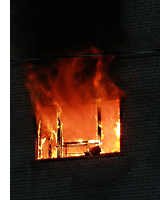 Michigan appeared to join those states barring a landlord’s subrogee from suing a tenant in the case of New Hampshire Insurance Group v. Labombard, 155 Mich. App 369, 375 (1986). There, the court held that a tenant is an implied co-insured in every lease, unless “expressly and unequivocal’ stated otherwise. But recent decisions give a new lease on life to recovery opportunities for insurers of landlords. In Laurel Woods Apartments v. Roumayah, 274 Mich. App. 631 (2007), the owner sued a tenant for a kitchen fire. The court held that the trial court erred when it granted defendant’s motion for summary disposition based on the Labombard decision, because defendant was contractually liable for the damages. The lease was found to shift the burden to the tenant for property damage caused to the premises. The court also rejected the argument that the lease’s failure to require the tenant to insure the premises precluded the landlord’s recovery. The Court of Appeals distinguished between negligence and contract claims, stating the following:
Michigan appeared to join those states barring a landlord’s subrogee from suing a tenant in the case of New Hampshire Insurance Group v. Labombard, 155 Mich. App 369, 375 (1986). There, the court held that a tenant is an implied co-insured in every lease, unless “expressly and unequivocal’ stated otherwise. But recent decisions give a new lease on life to recovery opportunities for insurers of landlords. In Laurel Woods Apartments v. Roumayah, 274 Mich. App. 631 (2007), the owner sued a tenant for a kitchen fire. The court held that the trial court erred when it granted defendant’s motion for summary disposition based on the Labombard decision, because defendant was contractually liable for the damages. The lease was found to shift the burden to the tenant for property damage caused to the premises. The court also rejected the argument that the lease’s failure to require the tenant to insure the premises precluded the landlord’s recovery. The Court of Appeals distinguished between negligence and contract claims, stating the following:
Labombard does not apply to this case. Labombard was a negligence action, whereas this is a breach of contract action. The holding in Labombard makes plain that the Court was limiting negligence claims against tenants for fire damage to circumstances in which there is an express agreement allowing such liability. Thus, although the Labombard Court considered the parties’ lease agreement, the holding in Labombard has no applicability here.
The court found the lease agreement to be “clear and unambiguous,” as follows:
[The lease states,] “Tenant shall also be liable for any damage to the Premises … that is caused by the acts or omissions of Tenant or Tenant’s guests.” Accordingly, defendants, who are defined as “Tenant,” are liable for “any damage” caused by their act or omission. Fire damage is clearly encompassed by the broad term “any damage.” And defendants’ liability is not limited to damage caused by their negligence, but rather, it extends to any damage that they cause, negligently or otherwise.
 On October 28, 2008, the Michigan Court of Appeals extended this decision to subrogation. In an unpublished decision, American States Insurance Company v. Hampton,2008 W.L. 4724279 (Mich. Ct. App. 10/28/08) (unpublished), the subrogee’s contract claims were deemed to be unaffected by Labombard. Citing to Laurel Woods, the court found the lease had similar language, establishing a contractual right of recovery. The Laurel Woods decision was reaffirmed in May 28, 2009 in American State Insurance v. Ratcliff, May 28, 2009, Wayne Circuit Court, LC No. 05-522975-NZ (unpublished). There, the commercial lease agreement required the tenant pay the landlord for the fire insurance premium. After a fire damaged the premises, the insurer paid the landlord for fire damage and brought a subrogation action against the tenant for negligence. The landlord subsequently joined the suit seeking damages for its uninsured loss. The seminal question was whether the landlord or tenant bore the risk for any damage in excess of the policy limit. The Court of Appeals ruled that the lease contained an express agreement requiring the tenant to bear responsibility for negligence. And that the lease terms were consistent with Laurel Woods. While this decision didn’t address the subrogation action, the trend continues of allowing recovery against tenants where the contract establishes the risk of loss against the tenant.
On October 28, 2008, the Michigan Court of Appeals extended this decision to subrogation. In an unpublished decision, American States Insurance Company v. Hampton,2008 W.L. 4724279 (Mich. Ct. App. 10/28/08) (unpublished), the subrogee’s contract claims were deemed to be unaffected by Labombard. Citing to Laurel Woods, the court found the lease had similar language, establishing a contractual right of recovery. The Laurel Woods decision was reaffirmed in May 28, 2009 in American State Insurance v. Ratcliff, May 28, 2009, Wayne Circuit Court, LC No. 05-522975-NZ (unpublished). There, the commercial lease agreement required the tenant pay the landlord for the fire insurance premium. After a fire damaged the premises, the insurer paid the landlord for fire damage and brought a subrogation action against the tenant for negligence. The landlord subsequently joined the suit seeking damages for its uninsured loss. The seminal question was whether the landlord or tenant bore the risk for any damage in excess of the policy limit. The Court of Appeals ruled that the lease contained an express agreement requiring the tenant to bear responsibility for negligence. And that the lease terms were consistent with Laurel Woods. While this decision didn’t address the subrogation action, the trend continues of allowing recovery against tenants where the contract establishes the risk of loss against the tenant.
These unpublished decisions limiting the Labombard and finding a contractual basis to extend subrogation rights against tenants, provide an excellent basis to argue pre-suit and in suit that subrogation claims against tenants are not dead in Michigan.



